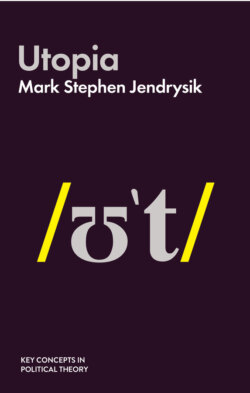Читать книгу Utopia - Mark Stephen Jendrysik - Страница 8
Homo utopicus: The Mindset of the Utopian Animal
ОглавлениеUtopia begins with politics. Utopia might not end with politics, but the nature of political life, the distribution of power among individuals and in society, and the legitimacy of authority over the community lie at the heart of utopian thought.
We can begin with two propositions from the ancient Greek philosopher Aristotle. First, in his classic work The Politics, he declared that humans are “by nature a political animal” (1996: 13). If he is correct and we are political animals, then politics must be the central pivot of our lives. Politics is really the only thing that sets us apart from the animals. The organized struggle for power and authority conditions our lives and our societies. Second, if Aristotle is also correct that the good state is based on friendship (1996: 75), then politics becomes the art of working together and moving toward some realization of the common good. No state can be fully legitimate unless it is based on the actions of those who are equal, since true friendship is based in equality.
The political animal, then, is an autonomous individual who is able to think and act freely as a person. The political animal is not an individualist, valuing personal goals above all else. But the political animal is able to think and act and, most critically, decide whether or not to accept the values and goals of an existing society. Obviously, the extent of an individual’s autonomy cannot be fixed. It will vary depending on many circumstances. But, to address honestly the central problem in utopian thought, the place of the individual in the perfected community, utopian thinkers must come to grips with the political animal.
Taming the dangerous and self-destructive tendencies of the political animal becomes the critical task of all forms of politics. Taming becomes even more important in utopia, since utopia strives for a kind of justice, order and societal well-being far beyond the somewhat ramshackle arrangements that have characterized most of human political history. Utopian thought demonstrates a revulsion against political forms arising from what the American constitutional framer Alexander Hamilton called “accident or force” (2003: 1). The utopian mindset questions everything, not simply to tear things down but to make us look at the world in new and exciting ways. The utopian asks how we can create a community in which authority, whether exercised by something we can recognize as a government or through social norms, is accepted as legitimate and good. So, utopian thought questions all social and political organization. As Plato said in his Seventh Letter, all existing states are “bad – nothing can cure their constitution but a miraculous reform assisted by good luck” (1973: 114). His contempt for the imperfect political systems of his own times led him to create a model for many future utopias, the community of total commitment, subsuming individual desire to the good of the whole.
Utopia is a humanistic enterprise. It is based in the belief that society can be understood by human beings and changed for the better. Any utopian theory worth discussing must recognize the value of our fellow beings and our moral relation to them. Recognizing a common good extending beyond the self, the family, or a particular religious or ethnic community remains the greatest and most utopian aspiration of all.
